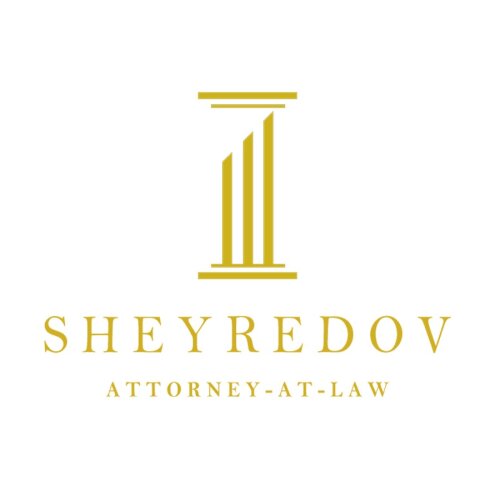Best Trusts Lawyers in Plovdiv
Share your needs with us, get contacted by law firms.
Free. Takes 2 min.
List of the best lawyers in Plovdiv, Bulgaria
About Trusts Law in Plovdiv, Bulgaria:
Trusts in Plovdiv, Bulgaria are a legal arrangement where a person (the settlor) transfers assets to a trustee to hold and manage for the benefit of beneficiaries. Trusts can be used for various purposes, such as estate planning, asset protection, and charitable giving.
Why You May Need a Lawyer:
You may need a lawyer for assistance in creating a trust, navigating complex trust laws, resolving disputes related to trusts, or modifying existing trusts. A lawyer can provide legal advice, ensure that the trust is properly structured and executed, and protect your interests.
Local Laws Overview:
In Plovdiv, Bulgaria, trusts are governed by the Trusts and Trust Companies Act. Key aspects of local laws include the requirements for creating a trust, the duties and liabilities of trustees, the rights of beneficiaries, and the taxation of trusts.
Frequently Asked Questions:
1. What types of trusts are recognized in Plovdiv, Bulgaria?
In Plovdiv, Bulgaria, various types of trusts are recognized, including discretionary trusts, charitable trusts, and special purpose trusts.
2. How do I create a trust in Plovdiv, Bulgaria?
To create a trust in Plovdiv, Bulgaria, you need to draft a trust deed outlining the terms and conditions of the trust, appoint a trustee, and transfer assets to the trust.
3. Can I be both the settlor and the trustee of a trust in Plovdiv, Bulgaria?
Yes, it is possible for the settlor to also serve as the trustee of a trust in Plovdiv, Bulgaria. However, it is important to ensure compliance with legal requirements.
4. What are the duties of a trustee in Plovdiv, Bulgaria?
Trustees in Plovdiv, Bulgaria have various duties, including acting in the best interests of the beneficiaries, managing trust assets prudently, and keeping accurate records of trust transactions.
5. Can a trust be challenged in Plovdiv, Bulgaria?
Yes, a trust can be challenged in Plovdiv, Bulgaria on grounds such as lack of capacity, undue influence, fraud, or breach of trust. It is advisable to seek legal assistance if you wish to challenge a trust.
6. How are trusts taxed in Plovdiv, Bulgaria?
Trusts in Plovdiv, Bulgaria are subject to taxation on income generated within the trust. It is recommended to consult with a tax advisor for advice on trust taxation.
7. Can I modify or terminate a trust in Plovdiv, Bulgaria?
Modifying or terminating a trust in Plovdiv, Bulgaria may be possible depending on the terms of the trust deed and legal requirements. Seeking legal advice is advisable for such actions.
8. What are the rights of beneficiaries in a trust in Plovdiv, Bulgaria?
Beneficiaries in a trust in Plovdiv, Bulgaria have rights to information about the trust, to receive distributions from the trust, and to hold the trustee accountable for their actions.
9. How can a lawyer help me with a trust dispute in Plovdiv, Bulgaria?
A lawyer can help you navigate trust dispute resolution mechanisms, such as mediation or litigation, and protect your interests in trust-related conflicts in Plovdiv, Bulgaria.
10. How can I find a trust lawyer in Plovdiv, Bulgaria?
You can find a trust lawyer in Plovdiv, Bulgaria by seeking referrals from other legal professionals, conducting online research, or contacting the local bar association for recommendations.
Additional Resources:
For more information on trusts in Plovdiv, Bulgaria, you can contact the Plovdiv Bar Association or the Bulgarian Chamber of Private Bailiffs and Trustees.
Next Steps:
If you require legal assistance with trusts in Plovdiv, Bulgaria, consider scheduling a consultation with a trust lawyer to discuss your specific needs and concerns. A lawyer can provide personalized advice and guidance on how to proceed with your trust-related matters.
Lawzana helps you find the best lawyers and law firms in Plovdiv through a curated and pre-screened list of qualified legal professionals. Our platform offers rankings and detailed profiles of attorneys and law firms, allowing you to compare based on practice areas, including Trusts, experience, and client feedback.
Each profile includes a description of the firm's areas of practice, client reviews, team members and partners, year of establishment, spoken languages, office locations, contact information, social media presence, and any published articles or resources. Most firms on our platform speak English and are experienced in both local and international legal matters.
Get a quote from top-rated law firms in Plovdiv, Bulgaria — quickly, securely, and without unnecessary hassle.
Disclaimer:
The information provided on this page is for general informational purposes only and does not constitute legal advice. While we strive to ensure the accuracy and relevance of the content, legal information may change over time, and interpretations of the law can vary. You should always consult with a qualified legal professional for advice specific to your situation.
We disclaim all liability for actions taken or not taken based on the content of this page. If you believe any information is incorrect or outdated, please contact us, and we will review and update it where appropriate.










